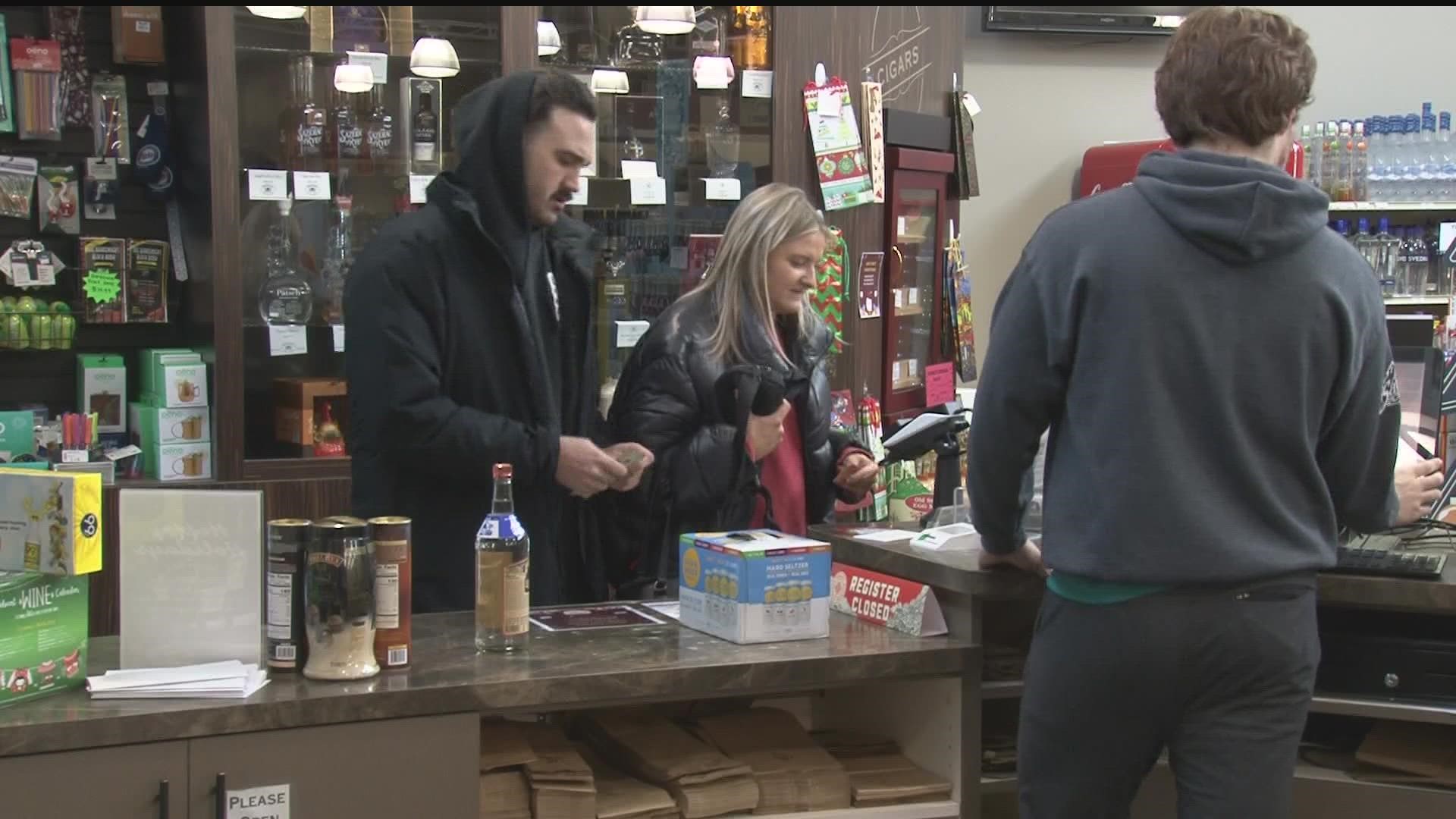MINNEAPOLIS — Municipal liquor stores in Minnesota set a new sales record in 2021, for the 26th straight year, according to a new report from the Office of the State Auditor.
The annual analysis of city-owned liquor operations found 212 stores owned by 171 cities had combined sales of $423 million in 2021, an increase of 3.2% over 2020 sales. The City of Lakeville led the pack, with a combined $19 million in sales from it’s four municipal stores.
Profits hit $36.4 million in 2021. Profits from on-sales – liquor consumed on premises – were $6.4 million, representing a 105% year-to-year jump. This was mainly due to the fact that restaurant and bar closings during pandemic in 2020 suppressed on-sale revenue.
Profits from off-sale – alcohol packaged for retail – were $30.1 million in 2021, which was a decrease of 8.5% compared to 2020.
Again, the main factor is that off-sale revenue soared during the height of the pandemic in 2020. But 2021 off-sale profits were still far higher than before the pandemic.
“This report was started out of our office as people had a lot of questions about municipal liquor stores,” State Auditor Julie Blaha told reporters Thursday.
“Where does the money go? Are they effective? Do they do what we'll hope they'll do?”
The City of Savage Liquor Store at The Marketplace hosted Blaha for a live, online presentation of her annual report, which also tracks how much money liquor stores return to city governments to help pay the bills.
“The past two years for the City of Savage have been very profitable. Over the past two years we've put more than $1 million back into the community,” Brenda Visnovec, who manages the city’s liquor operations, told KARE.
In Savage that money has recently gone to parks, libraries, the fire department, and other projects. That influx of liquor revenue takes some of the pressure of local property taxpayers.
Visnovec has spent 40 years in the municipal liquor store management profession, and during that time has seen city-owned stores thrive by looking to compete with private market stores.
“Our stores used to be dark, and municipals were known for no windows, cinder block walls, and we've really turned them into aesthetically appealing retail sites.”
The number of city-owned liquor stores has steadily declined over the past 30 years, while overall profits have kept setting new records.
“When you see the number of liquor stores dropping while the overall profits are increasing, I think that suggests that close attention is helping people manage these well,” Blaha remarked.
State law requires any city that loses money on its liquor operation in two years during a three-year period to hold a public hearing to consider whether it’s worth remaining in the alcohol business.

